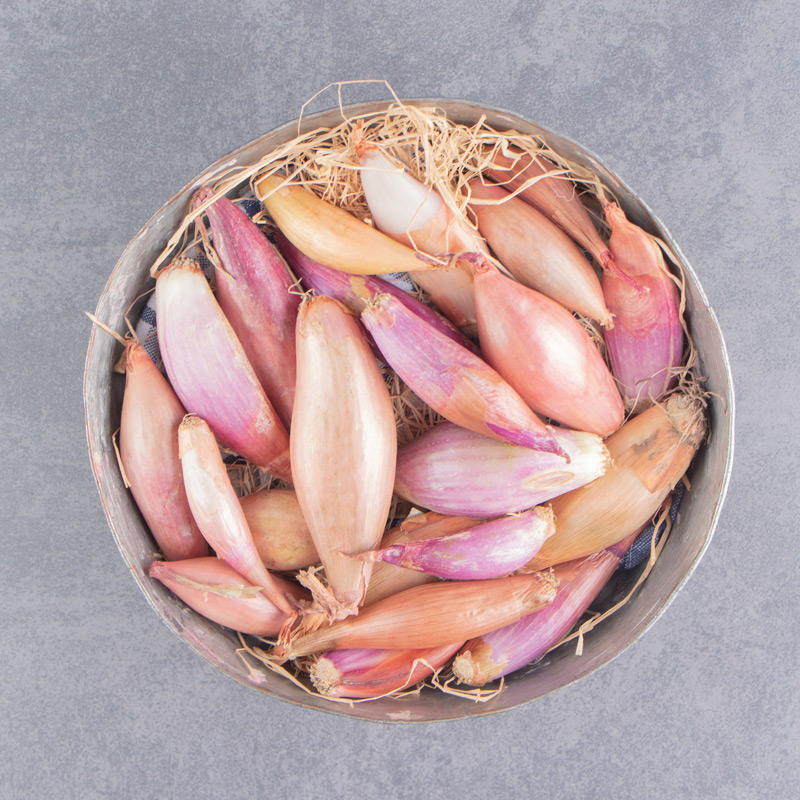
100 gr |
-- |
|
|---|---|---|
| Carbohydrate (gr) | 15.04 |
4928.47 |
| Protein (gr) | 3.59 |
1176.23 |
| Fat (gr) | 12.46 |
4083.43 |
| Fiber (gr) | 1.36 |
445.97 |
| Cholesterol (mg) | 14.64 |
4795.8 |
| Sodium (mg) | 325.27 |
106557.75 |
| Potassium (mg) | 392.16 |
128471.4 |
| Calcium (mg) | 78.15 |
25603.27 |
| Vitamin A (mg) | 46.04 |
15084.01 |
| Vitamin C (mg) | 6.16 |
2019.31 |
| Iron | 0.62 |
203.1 |
The health benefits of shallots are remarkable, similar to those of garlic and onions, and many health professionals recommend including them in daily meals. This vegetable is packed with antioxidants, which protect the body from many diseases and enhance the immune system. Due to its unique mineral content, shallots are suitable for pregnant women, and their high fiber makes them an ideal choice for those on a weight loss diet. This fiber content helps in burning fat and adds to nutritional value.
Rich in essential minerals and vitamins, shallots are beneficial for skin health and can improve hair appearance. Often called “wild garlic” or “Iranian garlic,” shallots are a natural hybrid of garlic and onions, combining the benefits of both. As a result, the benefits of shallots multiply, surpassing each individually.
100 grams of cooked shallots contain about 24 calories.
Shallots have powerful anti-cancer properties due to their antioxidants, which combat free radicals, reducing the risk of cancer development. Regular consumption of shallots can potentially inhibit the growth of cancer cells and protect the body from cellular damage.
Shallots have antibacterial and antiviral properties that make them effective in preventing colds and the flu. Their natural compounds strengthen the immune system, offering protection against seasonal illnesses.
With their unique blend of natural compounds, shallots help maintain balanced blood sugar levels, making them especially beneficial for individuals with type 1 diabetes. Their low glycemic index also helps prevent blood sugar spikes.
Regular consumption of shallots aids in lowering bad cholesterol (LDL) while supporting good cholesterol (HDL). This can improve heart health and reduce the risk of cardiovascular issues over time.
Shallots contain compounds that help regulate blood pressure. Their anti-inflammatory properties reduce arterial inflammation, assisting in the maintenance of healthy blood pressure levels.
Shallots support liver health by helping cleanse toxins and promoting optimal liver function. Regular consumption can lead to improved digestion and increased energy levels.
The high fiber content in shallots supports digestive health by improving bowel movements and preventing constipation. This fiber also promotes beneficial gut bacteria, which enhances overall gut health.
Shallots are a nutritious addition to any diet, offering numerous health benefits, from cancer prevention to immune support and improved digestion. Their unique nutrient profile and versatility make them a valuable ingredient for a balanced, health-conscious lifestyle.